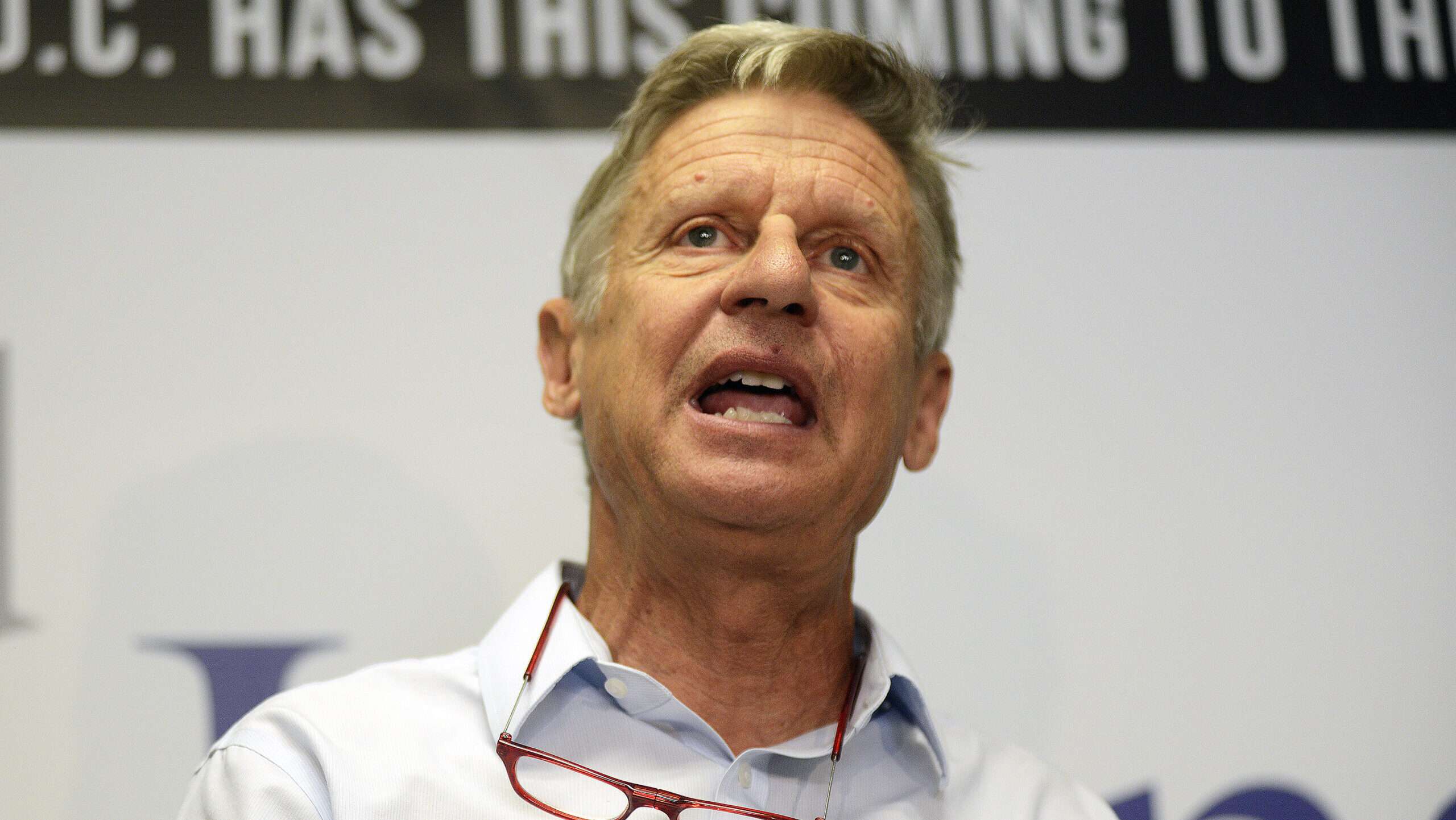Who Will Gary Johnson Vote For?
In the 2016 presidential election, Gary Johnson, the former governor of New Mexico and the Libertarian Party nominee, made a significant impact on the political landscape by garnering notable attention and coming close to the 15 percent threshold necessary to join the presidential debate stage with candidates Donald Trump and Hillary Clinton. However, as is typical with third-party candidates, his support waned in the final weeks of the campaign, resulting in only 3 percent of the national popular vote—still a record for the Libertarian Party. After attempting a Senate run in 2018 and subsequently retreating from the political arena, Johnson re-emerged to share his insights on the current state of American politics and the upcoming 2024 elections. He expressed mixed feelings about a potential Trump victory, acknowledging both positive aspects of Trump’s policies while also noting concerns about his drastic rhetoric. Moreover, Johnson characterized the political environment as a two-party system, which he believes hinders the ability of third-party candidates to succeed without substantial financial backing.
In an analysis of the current political landscape, Johnson expressed disappointment in the two leading candidates, President Joe Biden and Vice President Kamala Harris. He criticized the Biden administration’s record as “horrible,” mainly due to what he perceives as inflationary policies and a deepening national debt, which he views as the critical issue facing the nation. Johnson noted that he believes some of Harris’s proposals, such as rent control and a wealth tax, would exacerbate inflation and lead to a lack of housing development. Nevertheless, he acknowledged recent favorable rhetoric from both Trump and Harris regarding marijuana legalization, suggesting a slight shift towards the Libertarian Party’s core values in these topics. Nonetheless, he remains skeptical about the future relevance of the Libertarian Party without a candidate capable of competing financially with entrenched Republican and Democratic candidates.
Reflecting on Trump himself, Johnson reflected on his once vocal opposition to Trump’s character and the importance of honesty in leadership. While he previously described Trump as the epitome of what he wished to avoid in politics, he conceded that half of Trump’s actions align with his beliefs, particularly in economic matters and foreign policy. However, Johnson also pointed out the irrational aspects of Trump’s behavior, pointing to specific incidents that he finds troubling and labeling fears surrounding Trump’s potential threats to democracy as valid. These mixed feelings illustrate Johnson’s complex viewpoints on Trump, suggesting a balance between recognition of policy successes and the dangers they perceive in Trump’s erratic style.
As for the implications of Trump’s possible re-election, Johnson’s concerns center primarily on the increased national debt and anti-immigration stances that he feels would be detrimental to America’s economy. He articulated a belief in the necessity of new immigrants to support essential programs like Social Security and Medicare, demonstrating a commitment to a more welcoming immigration policy in contrast to Trump’s rhetoric. He also expressed skepticism about the integrity of the legal cases against Trump, framing them as politically motivated and demonstrating a nuanced understanding of the implications of weaponizing the justice system in the political arena.
When discussing Kamala Harris, Johnson acknowledged her competence and honesty, though he remains wary of her economic proposals and how they might affect inflation. He voiced clearer support for marijuana legalization—a long-standing Libertarian stance—and some hesitance yet acceptance of the evolving bipartisan support for this issue. Despite recognizing some positive statements from both major candidates on marijuana policy, he emphasized continued skepticism in the broader implications of their proposed economic policies, which he believes could lead to further national debt and inflationary pressures. Additionally, Johnson provided a blunt assessment of Biden’s presidency, criticizing his handling of major economic and health crises, and shared concerns about the cognitive abilities of both leading candidates due to their advanced age.
In evaluating the future of the Republican Party under Trump’s influence, Johnson conveyed that many Republicans feel alienated from the current leadership. He expressed an interest in potentially returning to the party if it aligns more closely with his libertarian views, emphasizing that the current environment under Trump complicates any hope for a diverse and inclusive political landscape. He noted that an independent candidate could only succeed with significant financial backing—something that only a billionaire could feasibly bring to the table, referencing figures like Michael Bloomberg as a likely possibility for such a transformative candidacy.
Ultimately, Johnson views the upcoming election as a pivotal moment in American history, with unprecedented stakes involved. Predicting a competitive race, he refrained from expressing a preference for either major candidate while underscoring the unpredictable nature of political shifts and public opinion. As a former candidate who has navigated the electoral landscape, Johnson’s reflections provide a poignant illustration of the challenges third-party movements face amidst a dominant two-party system, leaving readers contemplating potential outcomes as the 2024 Presidential election approaches. His extended commentary captures the complexities of contemporary political affiliations and the evolving lines of American political thought as they intersect with the traditional dichotomy of the Republican and Democratic parties.
Share this content:












Post Comment